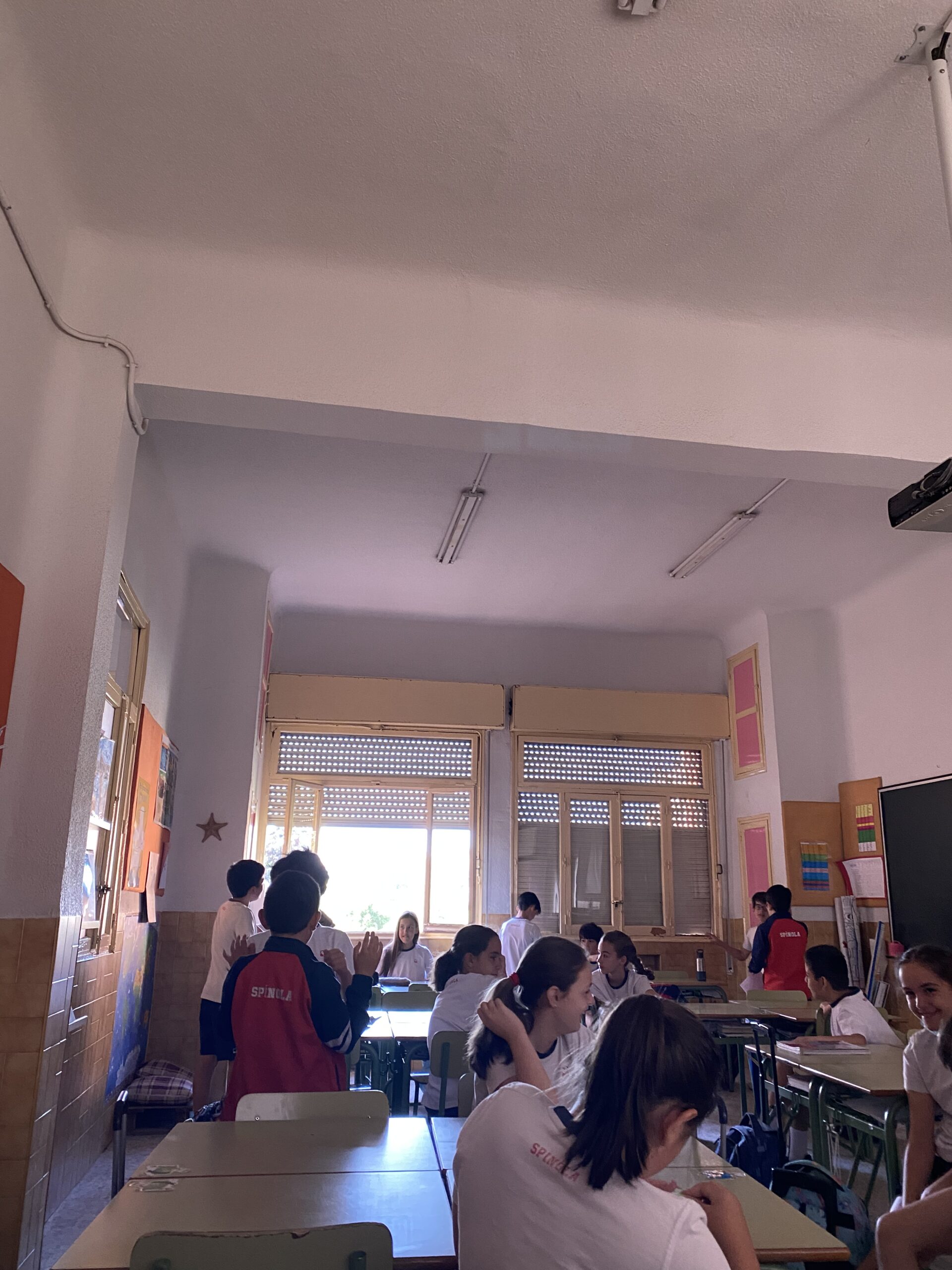
Teaching English & learning Spanish!
Speaking Spanish in the real world is completely different from studying it in my seven years of classes! I’ve come to accept that I have much room for improvement. Most of the time I have a pretty good idea of what’s going on; I’m living with a host family in the center of Madrid, and I can follow along with a dinner conversation. Normally, even when I talk in English, I do a lot more listening than speaking- that’s just the way I am. But in Spanish, if I want my language skills to improve, I need to put more intentional effort into just saying words.
Practicing Spanish has been really fun! Once, dinner with my host mom somehow turned into a discussion about the agricultural economy of Spain. We talked about how it’s better to buy oranges from Valencia rather than Morocco (by the way, the oranges in Spain are the best I’ve ever had- and I’m from California.) I stood my ground through that conversation, which demanded listening and comprehension and thought and replies beyond “estoy bien.” Then, that conversation segued into a story about another kid she hosted a few years ago who would only eat seedless strawberries. It’s a conversation that stands out to me because it flowed so interestingly and naturally, like one I would typically have in English. Overall, I’ve stopped rehearsing sentences before speaking. I just open my mouth and hope that words and correct conjugations come along (lol.)
On weekdays, I spend most of my time as an English language teaching assistant for a school in Madrid. Recently, I taught a class to 6 and 7 year old Spanish students. We spent the class working on English grammar and speaking conventions, but at the end, the teacher wanted to flip the roles around! He was like “hehehe … now Amy is going to try and translate these English sentences on the board into Spanish!” Of course I made some mistakes, and the kids were very excited by their newfound power in pointing out and correcting my errors. It was really funny and sweet, not to mention helpful; I now know to say “voy a preguntar mi mama” instead of “voy a pedir a mi mama.” Finally, the teacher asked the kids to assign me a grade for my level of Spanish. I received scores of 8.5 (!) from one and 8.25 from another. Not too shabby!
